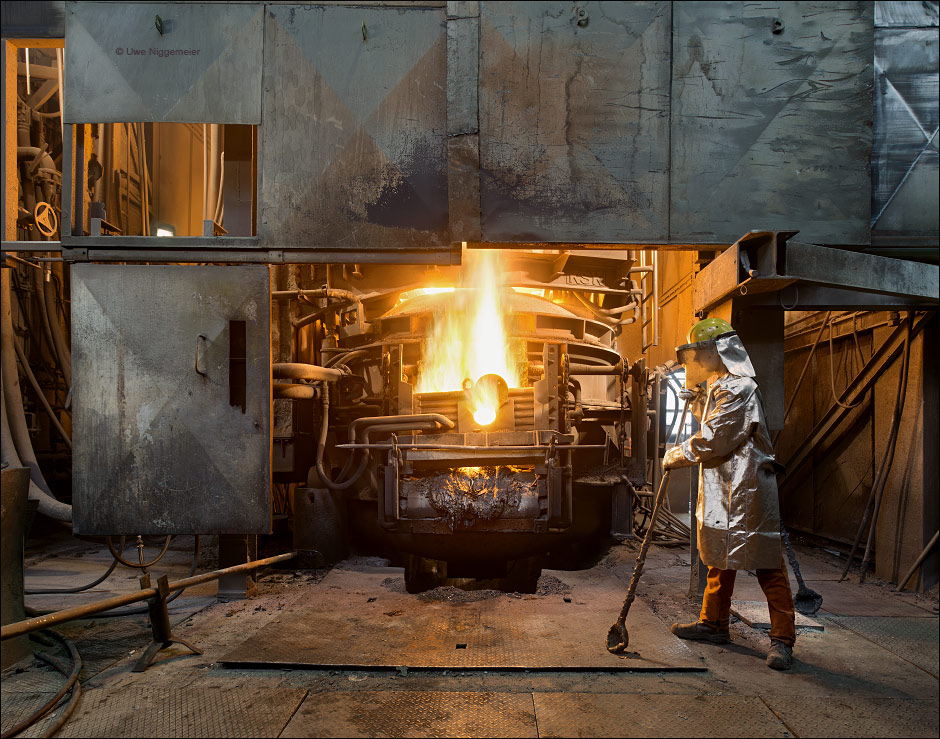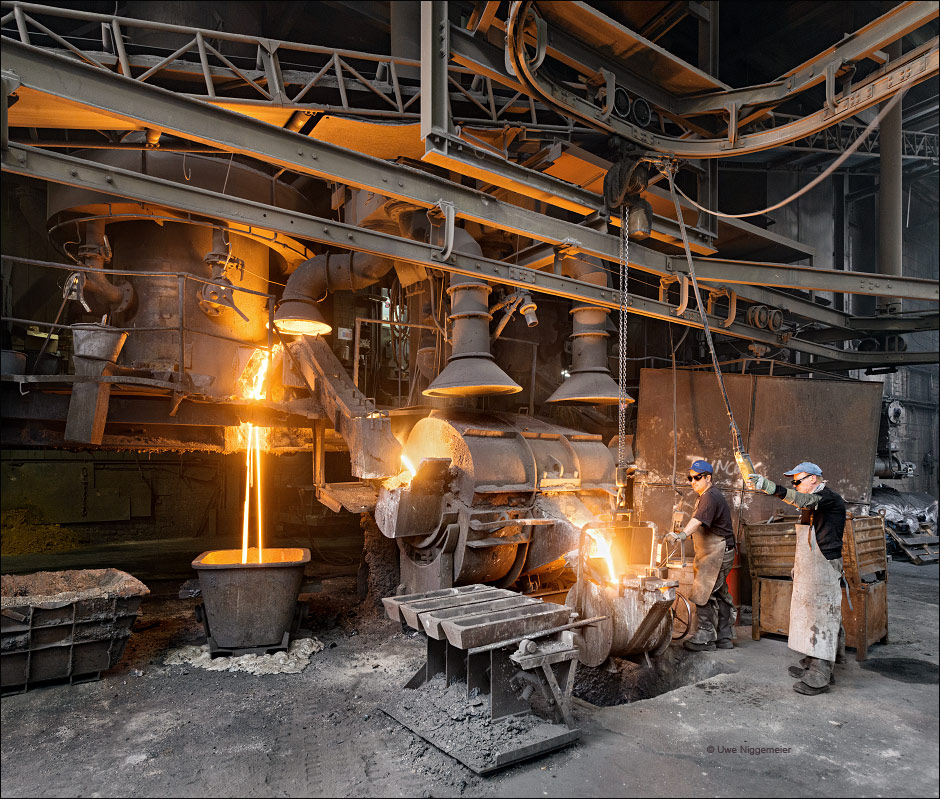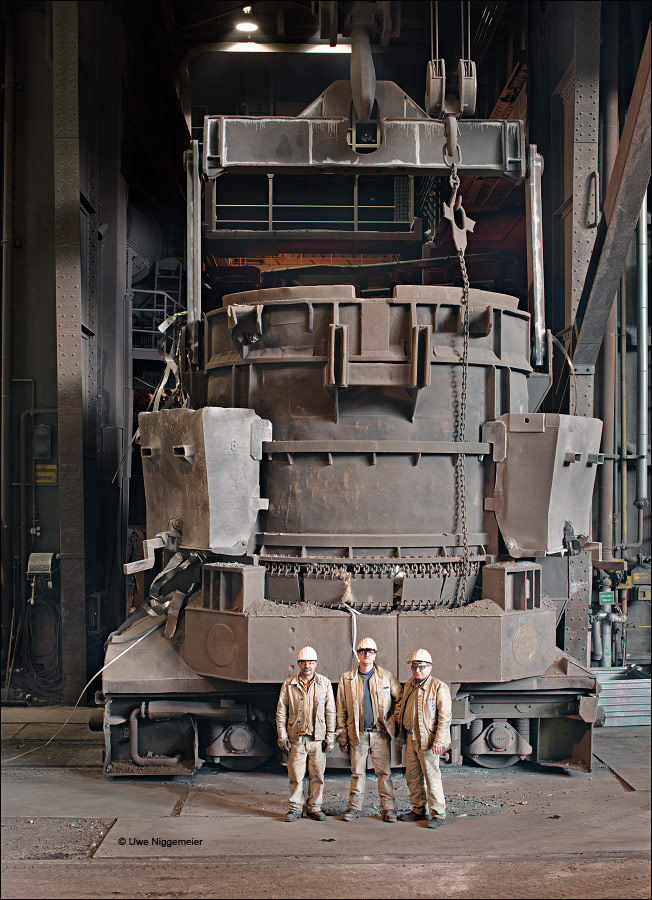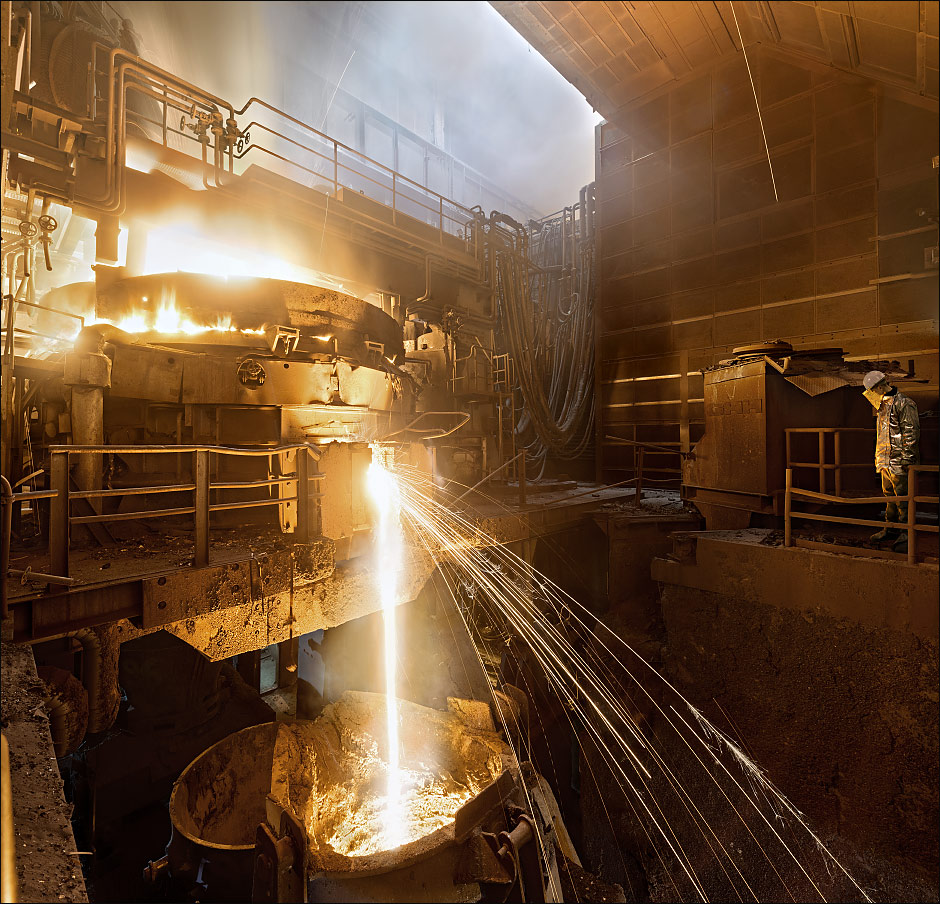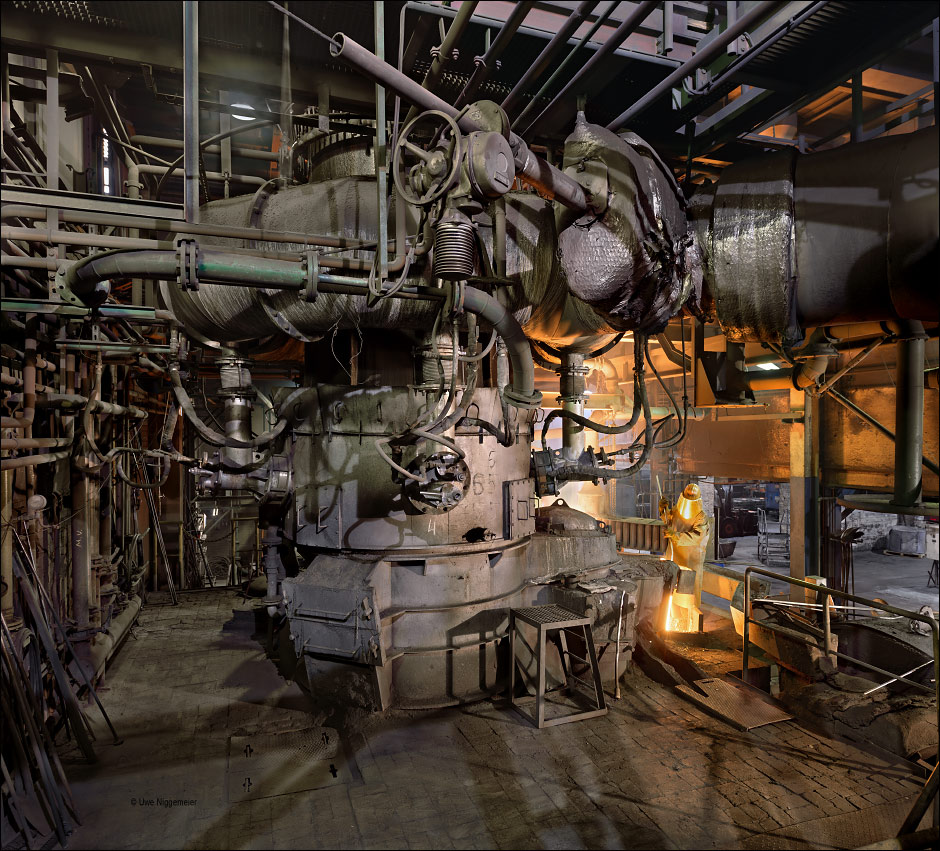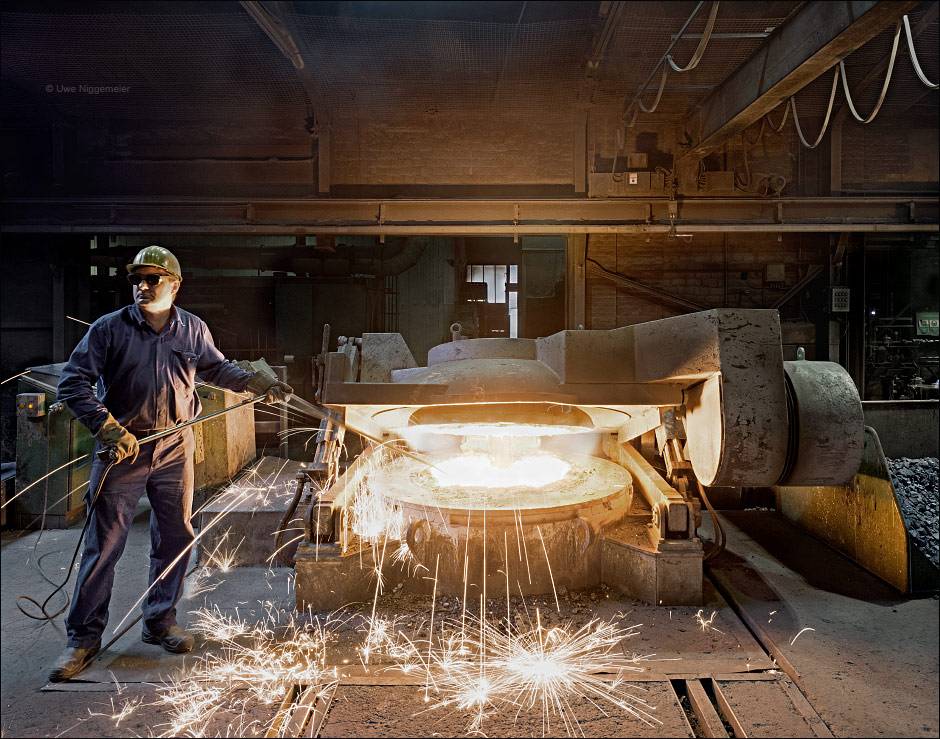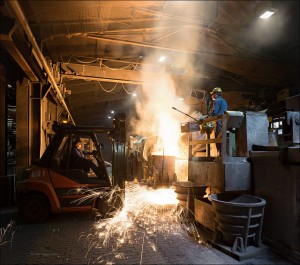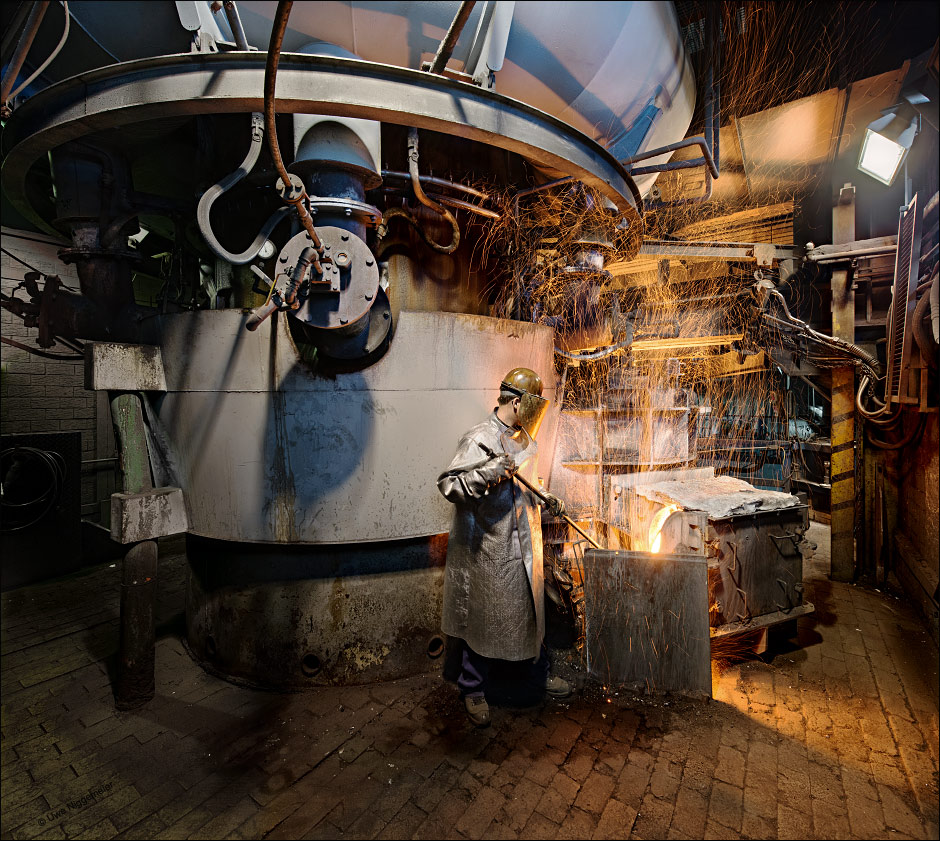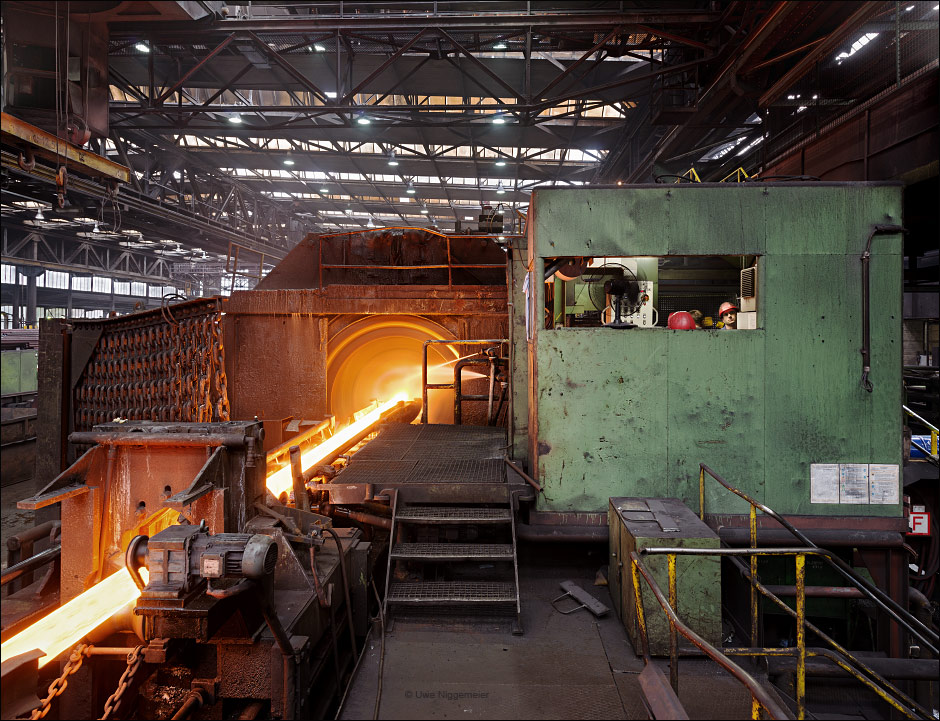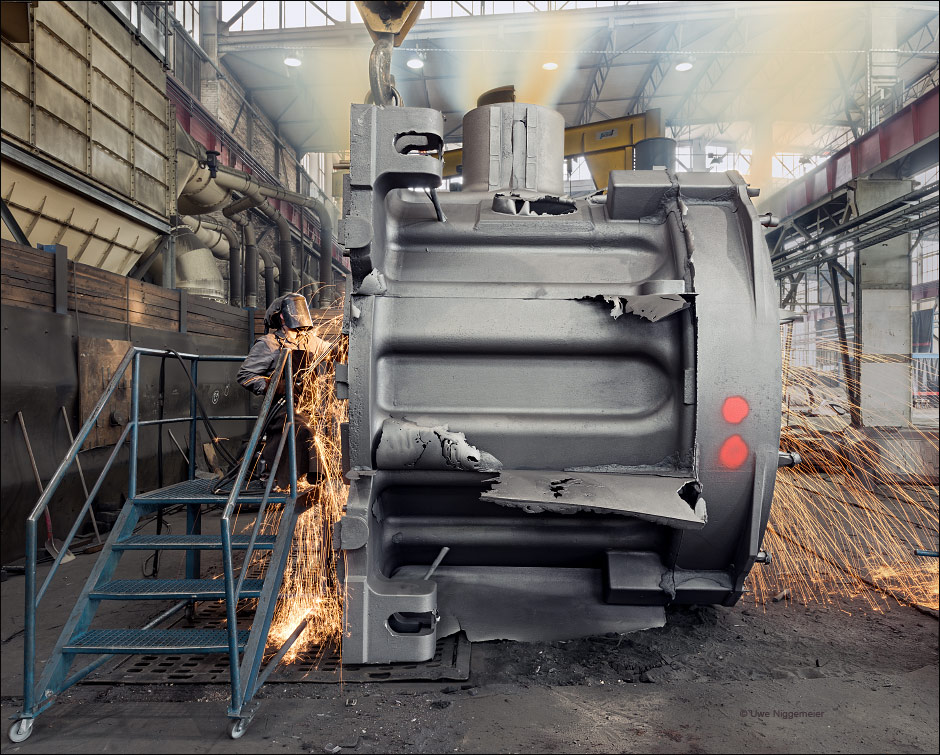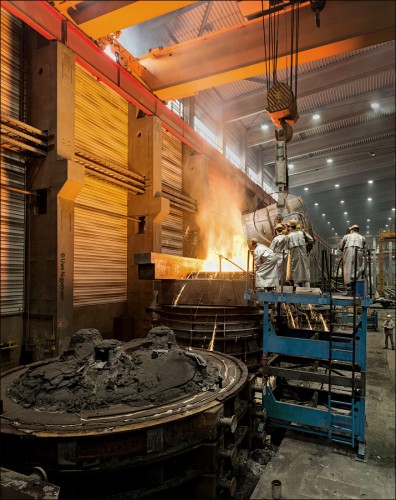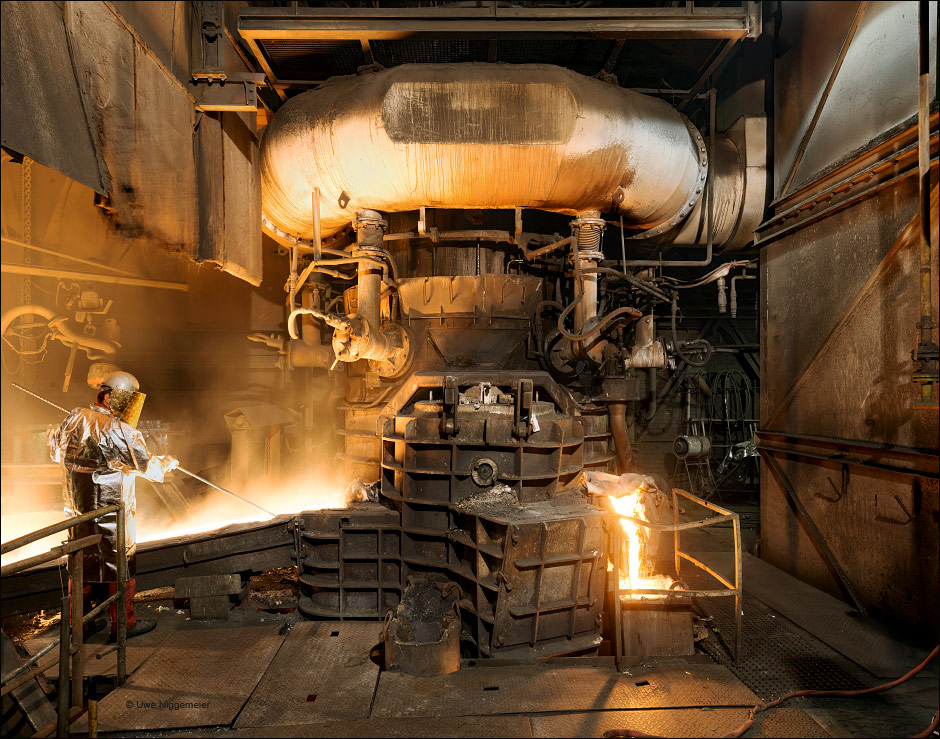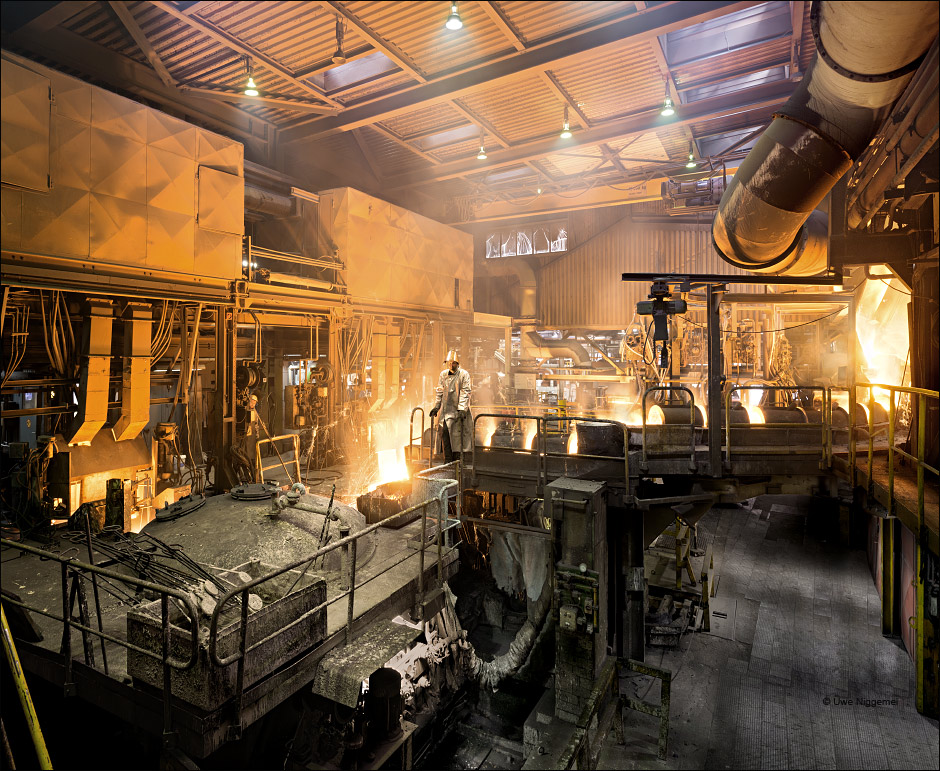Dörrenberg Edelstahl
A small steel mill with a long history. Dörrenberg Edelstahl in Engelskirchen-Ründeroth, Germany produces ingots, steel castings and investment castings.
Images now on my website.
The steel mill in Engelskirchen-Ründeroth was purchased by the Dörrenberg brothers in 1869 and subsequently became a leading producer of high alloyed tool steels.
A crucible steel making shop, hammer forges and mechanical shops were installed.
In 1916 an open hearth melt shop was commissioned.
The first induction furnaces used for steel production in Germany were built in 1928 in Ründeroth.
The electric arc furnace was commisioned in 1951. All forging activities ended in 1992. Since 1996 Dörrenberg Edelstahl is part of the Gesco-Group.

